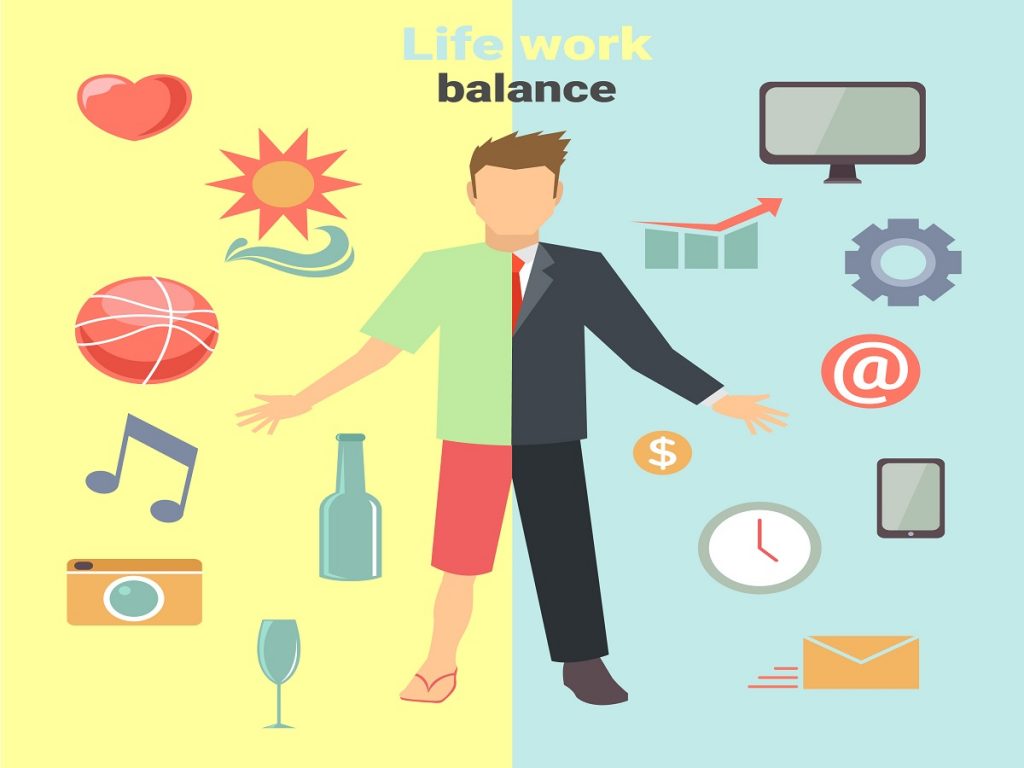While it may be tempting to think that working is the only way to get things done, taking pauses and attending to your personal life outside of work can assist you be more productive during working hours.
Excessive working hours have been linked to heart disease, poor sleep, memory loss, and burnout, according to studies. Conversely, employees who successfully strike a healthy work-life balance typically report reduced stress, increased output, and overall greater job satisfaction.
Thus, working excessive hours puts you at risk of impeding your own development. Attaining your career objectives requires maintaining a positive work-life equilibrium.
But remember that different people have different definitions of work-life balance. You are the only one who can define balance in your life because your priorities and values are unique to you. What’s possibly more significant is that your daily balancing act might be different. There will inevitably be late nights at work or in your general life, and that’s okay. Just don’t forget to regain your equilibrium as soon as you can stabilise yourself.

Here are some tips to help you maintain a healthy work-life balance:
- Take a moment to assess. Take a moment to consider the relationships between the various facets of your life. Are you investing enough time in important activities or relationships with others?
- Set new priorities. Decide which things you want to change first, then order them. Consider what is truly important to you, where you may make allowances, and what steps you can take to pursue your passions further.
- Set limits. Establish limits and let people know what they mean to you. Think about putting personal time on your calendar, disabling alerts after work, and only accepting invitations when you are truly excited about them.
- Ask for help. Skilled professionals frequently tend to shoulder all responsibilities alone. They do not want to “bother” anyone by asking for assistance. This can occasionally be connected to identification or a sense of duty. Instead, keep in mind that asking for assistance allows others to provide the gift of giving and contribute to a solution or support network. This increases the advantages of reciprocal connections for all parties.
- Think, refine and repeat. It takes time to achieve a work-life balance. Thus, be kind to yourself when you falter. Take some time to think about what works best for you and keep improving your strategy until you reach your objective.
Final Thoughts
You can see an increase in energy in all facets of your life as you establish a better work-life balance. Even something as basic as hanging out with friends can inspire a brilliant idea that could land you a promotion.
Establishing a proper work-life balance is a continuous and dynamic effort. As your circumstances and hobbies change over time, you’ll be learning new things and adapting frequently. It will necessitate improving critical abilities, such as time management.
Let it be fun! Remember to periodically assess your priorities to determine if anything has changed. You should evaluate if your priorities still correspond with the way you are devoting your time and attention.
Frequently Asked Questions
1. Which example represents work-life balance?
Some of the more prevalent work-life balance examples include practising flexible work schedules, taking care of dependent family members, having employee-friendly absence or vacation policies, delivering education or training, encouraging physical fitness and healthy living, and setting up enjoyable committees.
2. Is twelve hours a day of work too much?
Your health is significantly impacted by working 12 hours a day in every aspect. Specifically, excessive working results in reduced personal time spent at work or via remote work. This can therefore result in a decline in socialising and productivity.